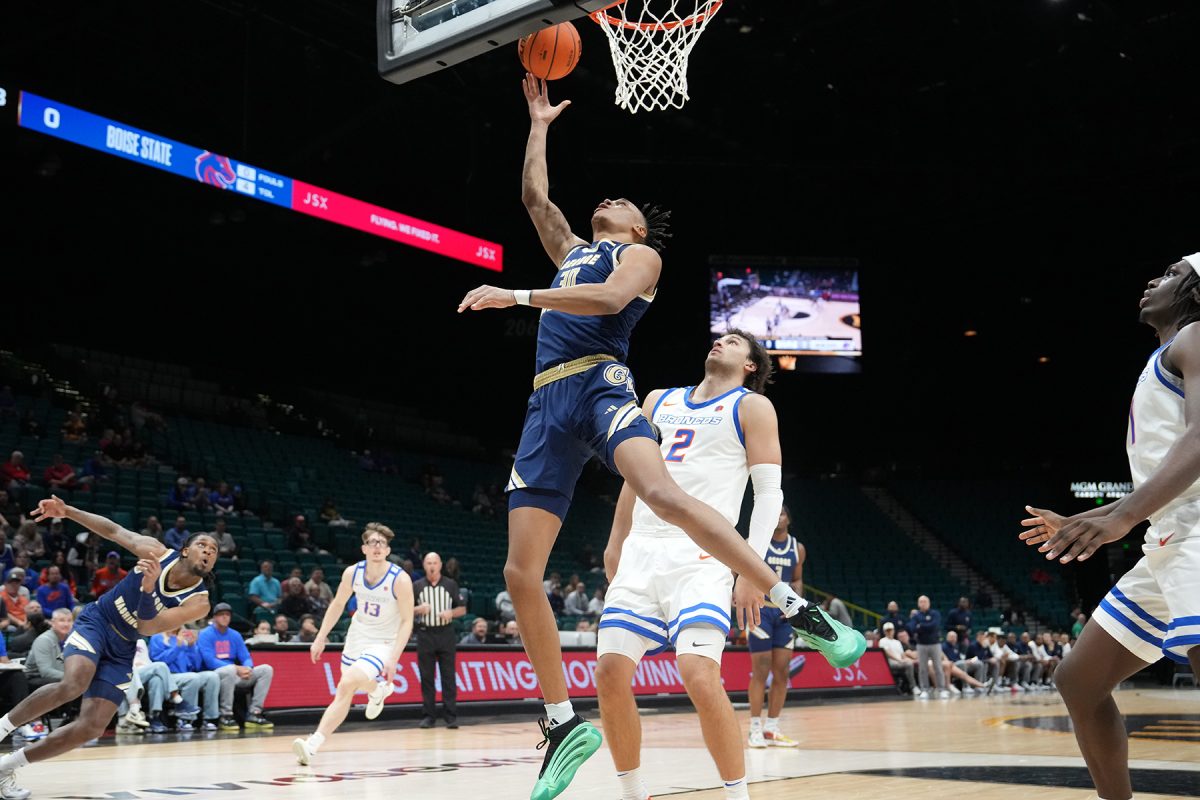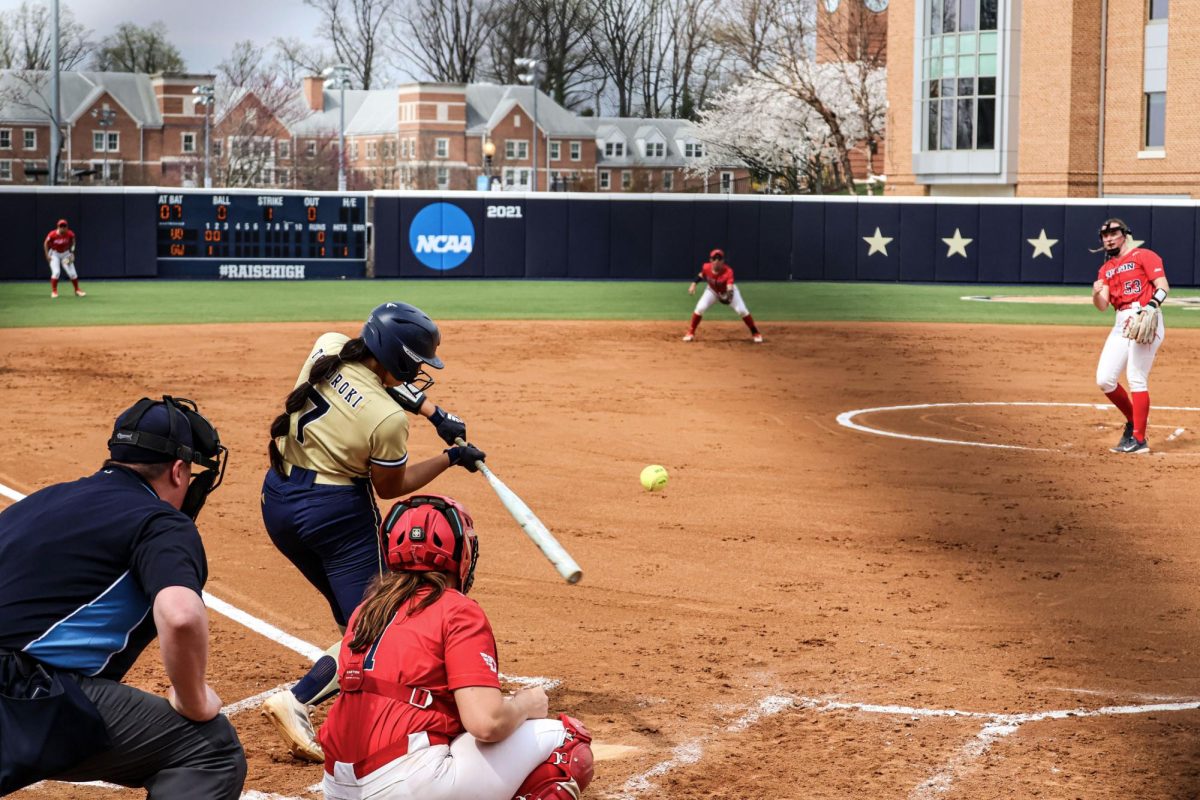NCAA transgender participation policies will now be left to national governing bodies of each collegiate sport, the association announced late last month.
The policy change comes after controversy surrounding University of Pennsylvania swimmer Lia Thomas made the transition to the women’s swimming team at the university, breaking multiple program records and qualifying for next month’s NCAA championships in the 200-, 500- and 1,650-yard freestyle events. Experts in collegiate athletics and gender studies said the policy change shows a lack of leadership from NCAA officials and leaves collegiate sports without clear guidance.
About two weeks after the NCAA’s announcement, USA Swimming and Diving updated its policy, adding the requirement of a 36-month testing period where transgender female athletes must obtain less than five nanomoles per liter of testosterone to compete.
“We are a member of the NCAA and recognize that this newly updated policy will impact current and future student-athletes in different ways,” GW Associate Athletics Director Brian Sereno said in an email. “It will be continuously important for all member schools and conferences to continue our critical work to best support all of our LGBTQIA+ students, which will allow them to be the best versions of themselves.”
GW alumnus Kye Allums came out as the first openly transgender basketball player at the NCAA Division I level during the 2010 season.
The NCAA guidelines prevented Allums, who started out with a scholarship from the women’s basketball team, from competing men’s team. Allums stepped away from his position on the women’s team before his senior year.
Experts said the newly updated policy shows a lack of leadership within the NCAA and will leave transgender athletes with uncertainty regarding their eligibility around the nation.
Mia Fischer, an associate professor of women’s and gender studies and the chair of the LGBTQ+ Faculty Assembly Committee at the University of Colorado Denver, said the updated policy’s broad nature led to confusion within the sports community. She said the announcement came as a surprise for many following college sports, and the athletes that have yet to determine their eligibility.
She said the NCAA could have done a better job at communicating the possibility of the policy change and hopes the NCAA releases clarification as the policy is implemented in the next few months to address the current backlash.
Fischer said the new policy could be used to create new opportunities for more coed or mixed events within the NCAA, opening up sports to think about more “trans nonbinary” inclusion at the NCAA level. She said this policy sets a standard among the different sports that could allow them to think beyond the sex segregation of sports.
She said the new testosterone requirement policy announced by USA Swimming is a step back from the International Olympic Committee’s transgender policy, which recently eliminated its dependence on testosterone count.
“So I think a lot of this is moral panic almost, that is actually not really substantiated,” Fischer said. “And so I would hate if that means that less trans nonbinary athletes actually feel safe and welcome and included in sports, and I think that might actually just deter them from competing.”
Matthew Hodler, an assistant professor of sports media and communication at the University of Rhode Island, said the testosterone tests represent a long history of women’s bodies being policed in professional sports to prove that they have the necessary anatomical components to be considered a woman.
“There’s a long history of women’s bodies being policed,” Hodler said. “And we also know that definitions and meanings of women are wrapped up in race and class as well. So more often than not, women of color, particularly Black women, are going to be targeted toward these ideas of who doesn’t look like a woman.”
He said most of the studies on testosterone levels have not specifically focused on the athlete population.
“And the studies that are available indicate that there is a lot more overlap when it comes to elite athletes,” he said. “These people are elite athletes. They’re not the general population. And a lot of the studies have been just on the general population. And two, if we’re just going to measure testosterone, why don’t we just do that and sort of play sports?”
Hodler said there’s a “good chance” national governing bodies follow the policy set up by the International Olympics Committee.
“There isn’t just one trans experience, and so writing a policy is very difficult,” Hodler said. “The definition of trans itself is a fluid experience and lived experience and embodied experience.”
Susan Cahn, a professor of history at the University at Buffalo, who has studied gender in sports, said the new policy grapples with issues of legitimate fairness, but the NCAA is “punting” and not looking to take a stance on the issue. She said it represents a more “conservative” approach than past policies by the NCAA.
“I think the reason that the NCAA has gone away from that is that people are making the argument that different sports differ in terms of what kinds of biological advantages a transgender woman might have,” Cahn said. “And so that the regulations should be sports-specific, but I think it’s going be a nightmare to enforce and it’s going to open athletes in certain sports up to more discriminatory politics.”
Cahn said she views the new policy as politically problematic because it opens the door for anti-trans policies to defend cis women and protect women’s sports in an inauthentic manner.
“I don’t see those governing bodies or some of the people behind the legislation at the state level, as ever having acted to defend women’s sports and gender equity before, and so I think it’s not genuine,” Cahn said.
Shaun Marq Anderson, an assistant professor of organizational communication at Loyola Marymount University, said he believes the new policy opens the door for acceptance since it brings the trans athlete conversation to the national level, but it remains to be seen what type of policies actually arise.
“There will be several short term battles that will really try these policies,” Anderson said. “Long term, I can see it being more stable.”





